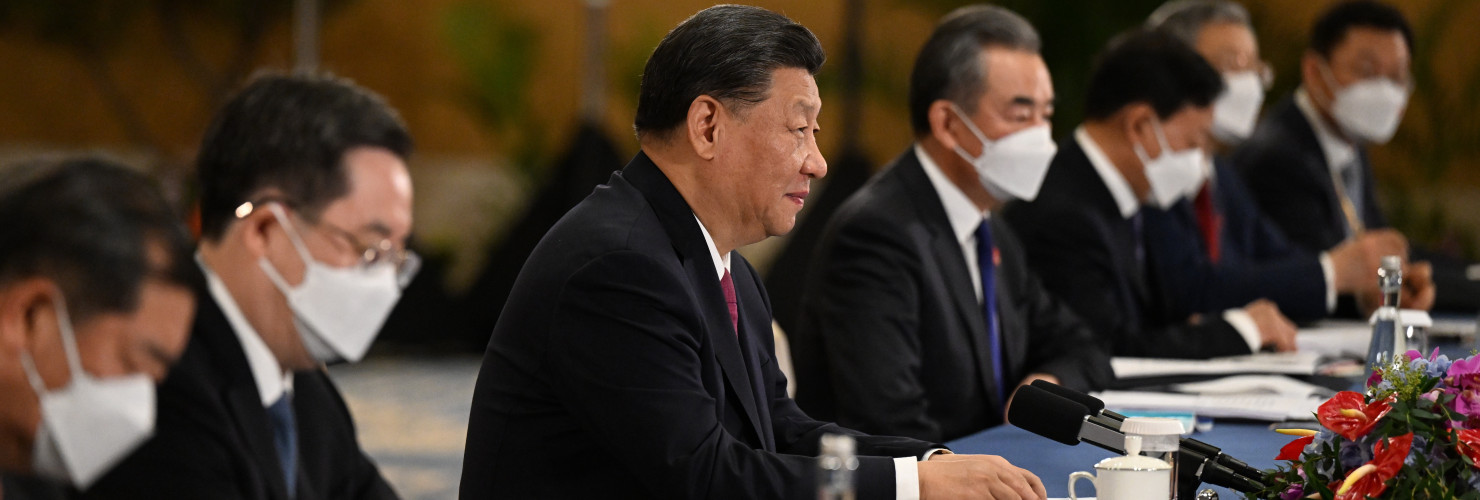

EU-China Opinion Pool: EU-China relations after the Party Congress
The 20th National Congress of the Chinese Communist Party (hereinafter: the Party Congress) signaled a continuation of Xi Jinping’s leadership, emboldening commitment to party policies now in full compliance with Xi Jinping thought. Having had some time to pore over the finer details of Xi’s work report, selected experts take a look at its implications for EU-China relations.
In this round of MERICS’ EU-China opinion pool, compiled by MERICS Analyst Grzegorz Stec, we have asked a number of experts:
What does the outcome of the Party Congress mean for the EU and EU-China relations?
Kjeld Erik Brødsgaard
Professor of China Studies at the Department of International Economics and Management and Director of the China Policy Program at Copenhagen Business School

On the positive side the Party Congress brought clarity on who, under Xi Jinping’s leadership, will lead China for the next five years. It is now time to study the background, qualifications and policies of the new Politburo and its Standing Committee in order to discern in which direction they may take China, and what it means for the outside world. The economic reform wing centered on Li Keqiang, Wang Yang and Hu Chunhua has been taken out of the equation, and more ideologically-oriented party leaders have taken over. They are all closely associated with Xi Jinping and will help to reinforce his centralized party-directed control of the economy and the Chinese polity. New appointments to the Politburo and the wider Central Committee indicate the rise of the aerospace group in Chinese politics. The aerospace group consists of dedicated technocrats, who can underpin China’s continued focus on pursuing technological and economic self-reliance, and an innovation-driven economic development model.
Five of the 24 new members of the Politburo have been to Denmark on study trips. Whether the two countries will be able to take advantage of such relations remains to be seen. In general, China is turning inward in order to tackle a number of internal social, political and economic challenges. This does not bode well for a possible deepening of EU-China political relations and, on top of this, business relations are hampered by continued strict Covid non-tolerance policies with continued travel restrictions and periodic lockdowns of cities and localities.
Alicia Garcia-Herrero
Chief Economist for Asia-Pacific at the French bank NATIXIS and Senior Fellow at the Brussels-based think tank Bruegel

China’s Party Congress is clearly important for China-EU relations for two main reasons. First, the outcome of the Party Congress points to a fast centralization of power with much more one-man rule than collegial decision making within the party. This means that Xi Jinping’s own understanding of EU-China relations and, in particular personal relations with EU leaders, are now more important than ever. Within such background, President Xi seems to have a clear preference for state-to-state bilateral relations rather than those with EU institutions. This has been clearly demonstrated by Chancellor’s Scholz trip to Beijing but also by the line-up of meetings at the G20 with President Macron as the most relevant bilateral meeting with President Xi. The fact that the EU-China Comprehensive Agreement on Investment (CAI) has remained on the back-burner due to China’s sanctions on members of the European Parliament is another reason why President Xi will not be keen on engaging at the EU level as much as with member states’ head of state, especially from large countries. This will not help align positions at the EU level.
My second takeaway relates to what I consider to be the most important objective stemming from the Party Congress, namely China’s modernization, which needs to be understood as technological supremacy. President Xi’s push for China’s technological upgrade will have a bearing on China’s policies towards Europe. The acquisition of relevant technologies will be very high on the Party’s agenda since most developed countries have put stricter tech-acquisition related regulations in place than their European counterparts. How EU Member States will respond to this is still an open question.
Marcin Jacoby
Head of the Department of Asian Studies at the SWPS University in Warsaw

Xi Jinping’s solid grip on power coupled with ever-worsening US-China relations mean that the EU should double its efforts in effectuating a more coherent, long-term strategy towards China, balancing between assertiveness and engagement. We now see that there are no major cracks in support for hardline policies by Xi within the CPC, and that the “struggle” narratives addressing the increased economic pressure that China faces and the ideological confrontation with the US are more prominent.
In this “besieged fortress” mode, and with Xi firmly in power, EU governments should be extra-careful. On the diplomacy front, especially in the CEE, better awareness should be built among EU political elites concerning Chinese and US interests and priorities. As China might make more efforts to break EU unity on certain issues through economic tools, CEE politicians should think in terms of informed decision-making to maintain the EU's assertiveness in pursuing its own policies.
Although tempting, single-handed initiatives that pursue short-term gains, such as in the case of Germany or Hungary should be avoided. Individual diplomatic initiatives, such as the Polish President’s 2022 Beijing Olympics visit that play into the hands of Chinese internal politics should also be avoided. Faced with strong, centralized crisis management policies on the Chinese side, the EU should maintain a careful, pragmatic, and highly-coherent stance.
Grzegorz Stec
Analyst, MERICS

Signaled at the Party Congress, China’s strategic trajectory does not bode well for EU-China relations during Xi’s third term.
The EU needs to factor a shift in Beijing’s priorities into its long-term China policy. Xi’s work report solidifies their change with security and ideology gaining importance over economic priorities to sustain legitimacy, as seen by the dynamic zero-Covid policy and growing assertiveness in Taiwan policy. The party’s focus on stability – through expanding control, leveraging nationalism, securing China’s geopolitical position through adjusting the international order and increasing self-reliance – is set to exacerbate the EU’s existing concerns.
The EU’s Chinese counterparts may become further ideologically constrained, i.e., less flexible, narrowing space for constructive engagement. The makeup of the new Politburo Standing Committee and limited representation of moderates or economic technocrats (like Li Keqiang, Hu Chunhua or Liu He), in the new Politburo show priority being given to ideological commitment and political alignment over meritocratic pragmatism. Moreover, Xi signaled that officials across the system are more likely to be evaluated on the basis of their adherence to the ideological line.
Being aware of the strategic trajectory outlined during the Congress, the EU should revisit its own EU-China Strategic Outlook from 2019 – retaining the three-pronged approach but revising its action plan, adding a new set of short to mid-term deliverables focused on the EU’s own policies and actions on its own side rather than bilateral objectives. Similarly, as China may at times seek to improve diplomatic momentum – as in the case of the G20 summit – the EU should try to capitalize on such instances to achieve verifiable commitments from Beijing on issue specific dialogues. The EU’s engagement with China should focus more on immediate and concrete gains, as the long-term trajectory of their objectives appear misaligned and underpinned by global competition.

This MERICS EU-China Opinion Pool is part of the “Dealing with a Resurgent China” (DWARC) project, which has received funding from the European Union’s Horizon Europe research and innovation programme under grant agreement number 101061700.
Views and opinions expressed are however those of the author(s) only and do not necessarily reflect those of the European Union. Neither the European Union nor the granting authority can be held responsible for them.
